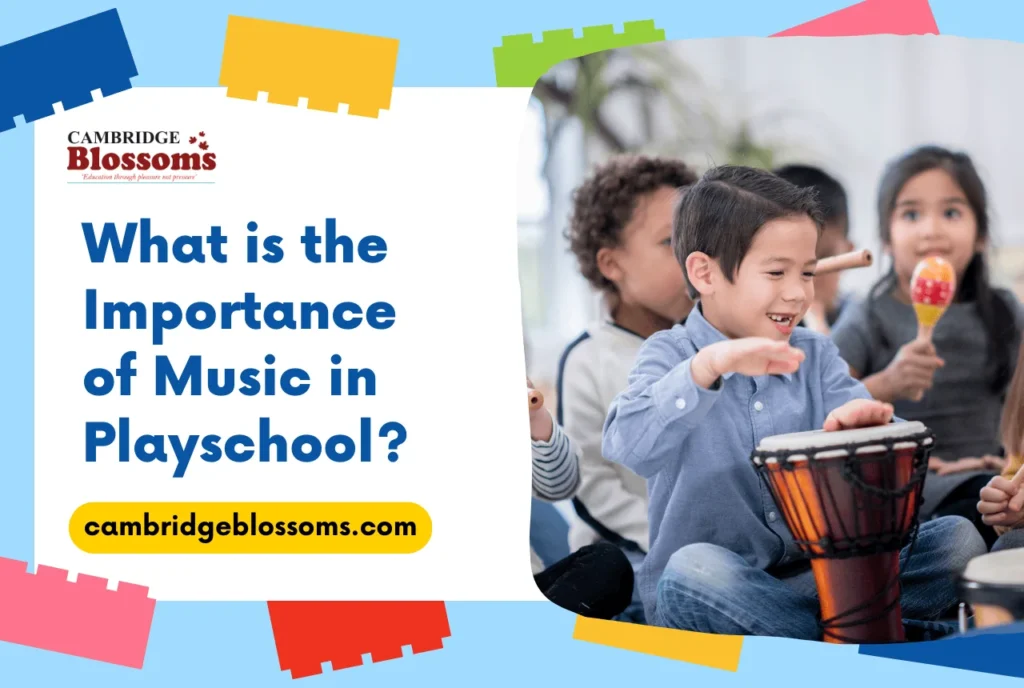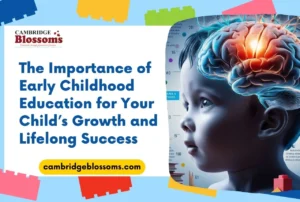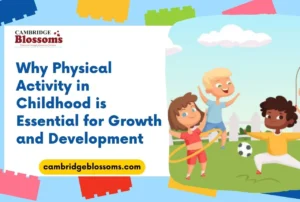Introduction
Did you know the importance of music in playschool? Music has an incredible impact on young children, often bringing joy, excitement, and energy to their daily routines. From a baby responding to a lullaby to a preschooler clapping along to a rhythm, music is a universal language that resonates with all. It plays a crucial role in early childhood education, especially in playschools where it helps with overall development.
Playschools serve as a foundation for learning and growth, introducing children to basic concepts that will shape their future education. Music is more than just an enjoyable activity—it supports cognitive, social, emotional, and linguistic development. With increasing recognition of music’s influence on holistic child development, it’s essential to integrate it into playschool curricula effectively.
This blog will explore the importance of music in playschool education and highlight five key benefits of incorporating music into early learning environments.
The Significance of Music Education in Playschool
Music education in playschool involves introducing children to rhythm, melodies, instruments, and movement-based musical activities. It includes spontaneous singing, structured lessons, and interactive musical games.
Music is not merely a form of entertainment; it is an essential educational tool that enhances brain development. Studies show that exposure to music strengthens neural connections, improving memory, attention span, and problem-solving abilities. Since music engages both sides of the brain, it helps children process information faster and more effectively.
Early musical experiences also lay the groundwork for future academic success. Whether it’s clapping to a beat, listening to different sounds, or singing songs that teach numbers and letters, music stimulates multiple areas of cognitive and emotional development.
In playschool settings, music education combines pre-planned and spontaneous activities, ensuring children receive structured learning while also exploring their creativity freely.
5 Key Benefits of Music for Playschool Kids
1. Enhances Cognitive Development
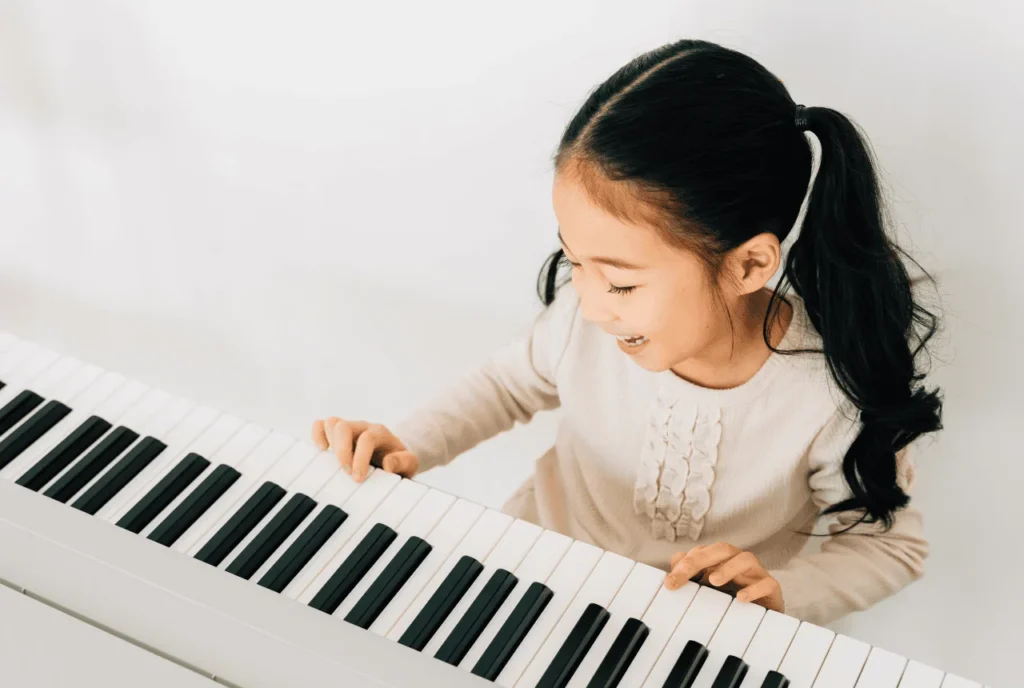
Music activates different areas of the brain, supporting cognitive functions such as:
- Memory and Retention: Learning lyrics and melodies helps children improve memory recall.
- Attention and Focus: Rhythmic patterns train young minds to concentrate and anticipate patterns.
- Problem-Solving Skills: Understanding beats and melodies enhances logical thinking and problem-solving.
Additionally, research has shown that children exposed to music tend to perform better in subjects like mathematics and language. Playing musical instruments, for example, strengthens spatial-temporal reasoning, which is essential for solving math problems.
2. Fosters Emotional Intelligence and Creativity
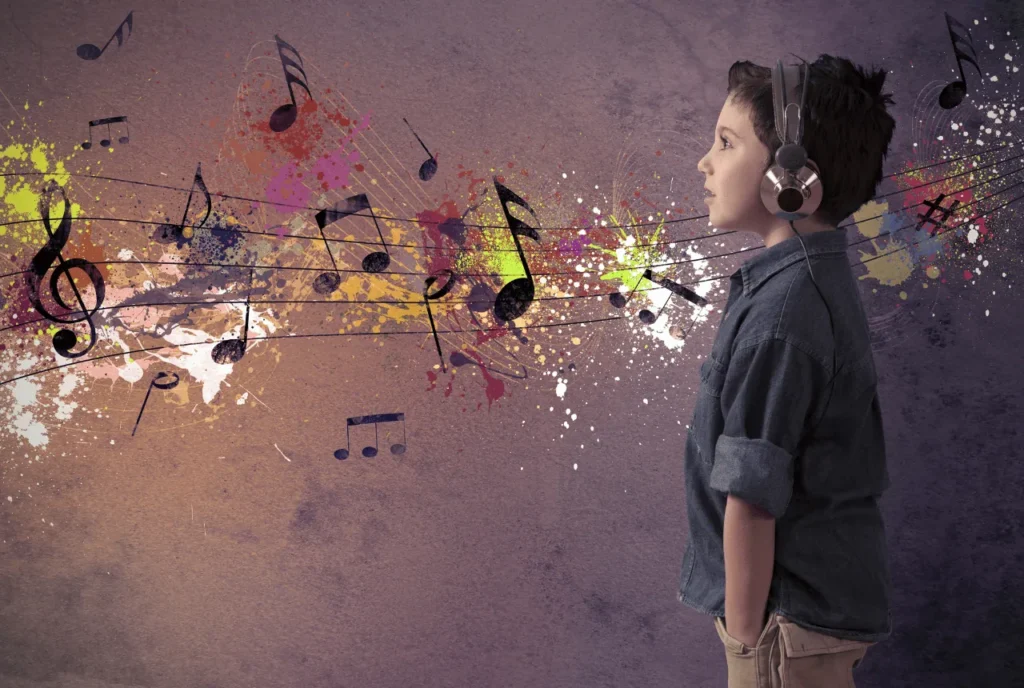
Music provides an outlet for children to express their emotions and develop emotional intelligence. Through different tones and rhythms, kids learn to associate feelings with sound, which helps them recognize and manage emotions.
Creative thinking is also nurtured through musical exploration. Whether children are making up their own songs, experimenting with beats, or improvising dance moves, music fosters imagination and innovation.
Additionally, children who engage in musical activities tend to be more empathetic, as they develop a deeper understanding of emotions conveyed through tone, pitch, and rhythm.
3. Develops Social Skills and Promotes Teamwork
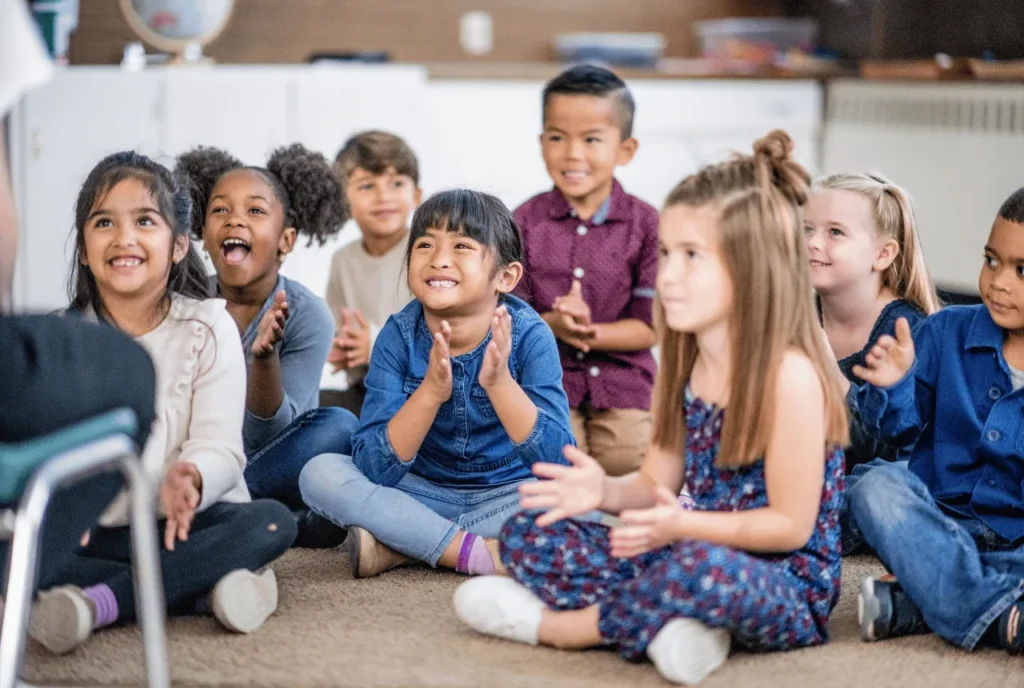
Music is often a group activity, helping preschoolers build essential social skills such as:
- Cooperation and Turn-Taking: Singing and playing instruments in a group setting teaches children to listen and respond to others.
- Sense of Community: Participating in group music activities fosters a feeling of belonging and connection.
- Improved Communication: Musical engagement helps children develop better listening skills, boosting their ability to communicate effectively.
Studies indicate that music education reduces bullying in schools by fostering self-esteem, cooperation, and mutual respect among students.
4. Improves Language and Verbal Skills

Music strengthens language development by:
- Enhancing Phonetic Awareness: Exposure to different sounds helps children recognize speech patterns.
- Improving Vocabulary: Songs introduce new words and concepts in an engaging way.
- Encouraging Self-Expression: Singing and musical storytelling boost confidence in verbal communication.
Before children can speak fluently, they often hum or imitate sounds, highlighting how music plays a role in early language acquisition. Additionally, singing along to repetitive songs helps reinforce sentence structures and pronunciation skills.
5. Instills Discipline and Perseverance

Music teaches children the value of practice and dedication. Learning an instrument, singing songs, or following a rhythmic pattern requires focus and discipline.
Through repeated practice, children learn:
- The importance of routine and commitment.
- Patience and perseverance in mastering a skill.
- The fulfillment of achieving small milestones through consistent effort.
Music also improves impulse control, as children must wait for their turn to play an instrument or follow a rhythm in a structured manner.
Incorporating Music into Playschool Curriculum in India
To maximize the benefits of music education, playschools can integrate music into daily routines. Here are some practical ways to do so:
1. Singing Sessions
Encourage group singing to introduce concepts like numbers, letters, and colors. Simple songs and rhymes can make learning more engaging.
2. Instrument Exploration
Provide children with basic musical instruments like tambourines, xylophones, and maracas to explore different sounds.
3. Movement-Based Music Activities
Incorporate action songs, dance, and rhythmic clapping games to enhance motor skills and coordination.
4. Thematic Music Learning
Use songs related to Indian festivals, traditions, and culture to help children connect with their heritage.
5. Music-Infused Storytelling
Pair stories with background music or sound effects to make storytelling more immersive and interactive.
Cambridge Blossoms: A Leading Preschool Integrating Music in Learning
Cambridge Blossoms, a top preschool in Guwahati, Assam, incorporates music into its curriculum to create an enriching learning experience. Their structured yet playful approach ensures children develop a love for music while gaining essential life skills.
Conclusion
Music is an invaluable tool in early childhood education. It enhances cognitive abilities, boosts emotional intelligence, promotes social skills, strengthens language development, and instills discipline in young learners.
By integrating music into playschool routines, educators and parents can provide children with a stimulating and joyful learning experience. Encouraging musical engagement at an early age lays a strong foundation for future learning and personal growth.
Final Thought:
Music is not just an addition to the curriculum—it is a powerful means of shaping young minds. Parents and teachers should embrace its potential and make it a fundamental part of early education.

